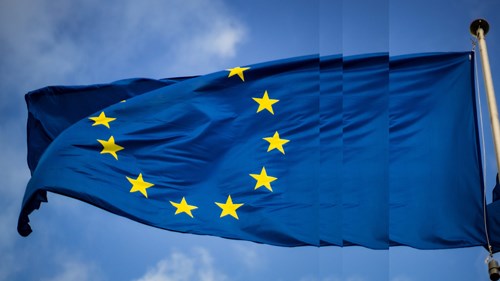Poland: New financial burdens for vaccine distributors
Under a new bill, all companies supplying the Polish state with vaccines would be obliged to pay 2% of their overall contract value to a special compensation fund. This fee is not intended to be applicable to contracts on the supply of COVID-19 vaccines negotiated by the EU on behalf of the Member States. Instead, the extra fees to be paid by the vaccine distributors relate to vaccines for human use purchased by the state. Nevertheless, the bill is under public consultation and thus what shape it will take and who will ultimately bear the costs remains unknown. The majority of the costs for vaccines are now borne by the state, meaning that the Polish market is predominantly a state-driven market.
The Polish Ministry of Health has published a draft of the new statute on the Polish Vaccination Compensation Fund (Draft of the Act amending the Polish Act on combating and prevention of infections and contagious human diseases and other acts, as of 18 January 2021). Under the new bill, all companies supplying the Polish state with vaccines for human use would be obliged to pay 2% of the value of each contract to the special compensation fund.
The bill is currently at the public consultation stage. However, if Parliament observes the deadlines indicated by the Ministry of Health and the draft itself, the companies would be obliged to start making additional payments in 2022.
Most of the mandatory vaccinations in Poland are financed from the central state budget, which means that the Ministry of Health purchases the vaccines via public tenders and then the vaccines are distributed among clinics and hospitals which have concluded agreements with the Polish National Health Fund to perform vaccinations. Patients neither participate in the cost of the vaccine nor in the costs of the healthcare services provided to them by the clinic (medical examination, performing injections, etc). However, if the patient decides to get vaccinated with a vaccine not provided by the state, he or she must bear its costs. Polish citizens are obliged to get vaccinated against certain diseases; other vaccinations financed by the state are simply recommended but are not compulsory. The third group of vaccinations are vaccinations which are neither compulsory nor recommended and as such are not financed by the state.
How would the payments work?
Each year the Ministry of Health organises tenders for the supply of vaccines used for mandatory and rec-ommended vaccinations. The successful tenderers are offered supply contracts. Under the new bill, these companies would have to pay 2% of the gross value of the contract to the Polish Vaccination Fund starting from 2022. Moreover, these payments should be paid upfront within two weeks of the conclusion of the supply contracts with the state. This means that the distributors would have to proceed with the payments before they get paid for the vaccines and before contract performance.
The funds collected in such a way are to be used to compensate claims by patients who experience serious adverse events as a result of vaccinations, including adverse reactions caused by COVID-19 vaccinations. Moreover, patients who experienced serious adverse vaccination events would also be entitled to compensation from the fund even if they were vaccinated using products which were not purchased by the state. In such a scenario, distributors of the vaccines not acquired by the state would not be obliged to pay 2% of their value but might indirectly benefit from the system as patients vaccinated with their products would be allowed to claim damages and compensation from the fund. The maximum threshold of compensation from the fund would be PLN 100,000 (approximately EUR 22,000) depending on the severity of the adverse event, but the “stakes start” with an anaphylactic shock, where compensation would reach PLN 3,000, and if patient is hospitalised for less than 14 days it will go up to PLN 10,000.
Patients who suffered serious adverse reactions as a result of a vaccination and were granted compensa-tion from the Compensation Fund would at the same time be entitled to bring product liability claims against the distributors/manufacturers of the vaccines, as the bill expressly allows such claims.
Financial implications
The value of the Polish vaccines market (reimbursed by the state) is estimated at roughly around EUR 50 million each year. Introducing a new burden for their distributors, who at the moment are mainly vaccine marketing authorisation holders, may pose a serious risk to the profitability of their business operations on the Polish market.
Some of the vaccine distributors are already considering withdrawing from the public system, which surprisingly became an alternative a few years ago in a similar situation for distributors of medicinal products. At that time, some of the pharmaceutical companies mainly manufacturing or distributing generic medicinal products decided to leave the public reimbursement schemes when it turned out that the overall costs of participating in the public system including potential penalties for lack of continuous supplies and other administrative burdens, for example, were exceeding the benefits of entering into the agreements with the public payer.








